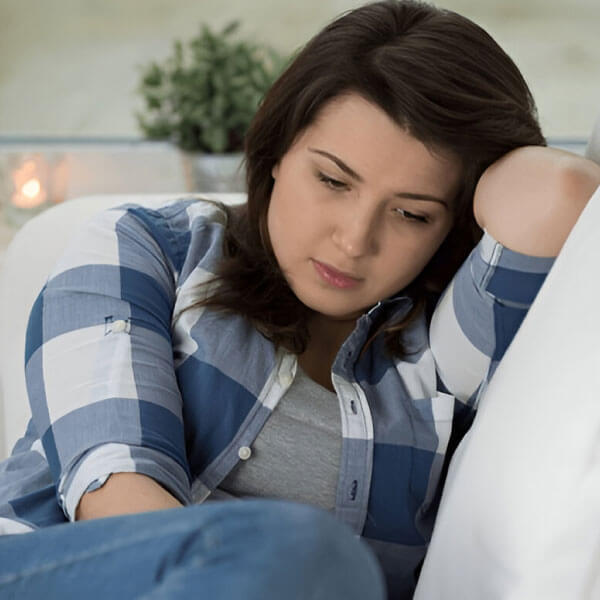
Anxiety-Induced Sexual Dysfunction happens when stress or fear affects desire, arousal, or comfort during intimacy. You’re not alone. Simple tools and support can help. Visit our DOXXES store on Westheimer/Dairy Ashford to explore products that may ease tension and support connection.
What Is Anxiety-Induced Sexual Dysfunction?
This condition includes issues like low sex drive, trouble getting aroused, or pain during intimacy—all caused or worsened by anxiety. It may feel like surface pain, deep muscle tightness, or discomfort brought on by certain triggers or situations.
Why Does Anxiety-Induced Sexual Dysfunction Happen?
Emotional causes include:
- Constant worry or general anxiety
- Fear of not performing well
- Past trauma or painful experiences
- Low confidence or body image concerns
- Relationship tension or poor communication
Physical causes include:
- Infections or swelling in intimate areas
- Hormonal shifts (like menopause or low testosterone)
- Tight or weak pelvic floor muscles
- Medical issues like endometriosis or prostate growth
These causes often work together. Worry causes body tension, and discomfort raises stress levels. Breaking this cycle helps recovery.
Examples and Identifying Triggers
Real-life examples:
- A woman avoids sex because penetration causes burning
- A man loses his erection when his mind races
- Someone skips foreplay due to fear of pain
- A partner freezes at the start of intimate touch
How to spot your triggers:
- Keep a short journal about mood, setting, and how your body felt
- Try different lubricants or positions to see what helps
- Notice if certain topics or places raise stress levels
Who It Affects and Gender Differences
This issue affects all genders—men, women, and nonbinary individuals. Women may feel dry or tight. Men may have trouble getting or keeping an erection. Nonbinary people might feel discomfort from both anxiety and gender-related distress. Understanding each person’s unique experience helps healing.
How a Sex Therapist Can Help
A therapist may:
- Review your history, including any “pain after intercourse”
- Look for signs of panic, sadness, or past trauma
- Teach ways to calm the body and reduce fear
- Suggest small steps to rebuild safe intimacy
- Connect you with support groups if needed
Ways to Treat and Cope with Anxiety-Induced Sexual Dysfunction
Therapy and Counseling:
- Learn to shift negative thoughts using CBT
- Try relaxation before intimacy—like slow breathing or muscle release
- Practice open, mindful conversations with your partner
These steps can lower anxiety and help you feel safer and more present during sex.

How Doxxes.love Can Help
We offer tools that support comfort and confidence:
- Water-based lubricants for smoother intimacy
- Pelvic floor trainers for muscle support
- Gentle vibrators for safe, gradual stimulation
- Prostate massagers for blood flow and relief
Each product includes clear instructions. When used with therapy, these can make progress faster and more enjoyable.
Talking About Anxiety-Induced Sexual Dysfunction with Others
- Say how you feel: “I get nervous when it hurts.”
- Use “I” to stay honest and kind
- Pick a calm time to talk things through
- Use tips from couples facing similar struggles
- Learn together with trusted info and expert advice
- Get help early if things start to feel overwhelming
Visit Our DOXXES Store on Westheimer/Dairy Ashford
Come to our calm, private showroom for guidance and support. Our friendly staff can answer your questions and show you safe, helpful products that fit your comfort level.
Conclusion
Healing from Anxiety-Induced Sexual Dysfunction takes care, communication, and the right tools. With support from therapy, gentle self-care, and DOXXES products, you can feel more confident and connected. Visit DOXXES on Westheimer/Dairy Ashford for expert support you can trust.
FAQs
- What is Anxiety-Induced Sexual Dysfunction?
This condition occurs when stress, fear, or overthinking interferes with your ability to enjoy intimacy. It can lead to reduced desire, trouble getting aroused, or even physical pain. - Why does it happen?
It often results from a mix of emotional and physical causes such as trauma, low self-esteem, tight muscles, or hormonal imbalances. - What are real-life examples and how do I identify triggers?
Examples include avoiding sex due to burning pain or losing arousal due to anxiety. Triggers can be tracked with journaling or experimenting with comfort tools. - Who does it affect?
It affects all genders and orientations, including cis men and women, and nonbinary individuals. - How can a sex therapist help?
They can guide healing by addressing trauma, teaching calm techniques, and rebuilding intimacy. - What are effective treatments?
CBT, guided relaxation, communication, and physical tools such as pelvic trainers and lubricants. - How can Doxxes.love help?
DOXXES offers tools like water-based lubes, pelvic trainers, vibrators, and more to aid comfort and progress. - How do I talk to others?
Use honest “I” statements and pick safe times. Therapy or shared resources can help the conversation. - Can this condition improve?
Yes, with care and support, many people experience relief and stronger connections. - Where can I get in-person help?
Visit the DOXXES store on Westheimer/Dairy Ashford for private support and product guidance.
